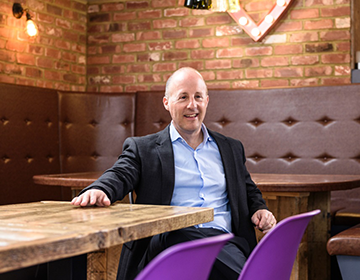
The housing market calmed in the first three months of this year, with volumes down 8.5% on the end of last year, latest Bank of England figures suggest.
But borrowers appear to be taking on more risk, with the number of loans above 90% LTV hitting its highest level for more than five years.
The figures also showed a surprise 0.5% fall in the proportion of lending to first-time buyers, who accounted for around 20% of lending in Q1 2014.
Mortgage lending has softened due to growing fears about overpriced property and the impact of an interest rate rise, said Jonathan Harris, director of mortgage broker Anderson Harris
"While new lending volumes rose to the highest amount in the first quarter of a year since Q1 2008, this was still 8.5% less than Q4 2013, suggesting that the housing market frenzy is moderating."
Nervous borrowers are increasingly willing to pay extra to protect themselves by taking out a fixed-rate mortgage, with 81% of borrowers opting for a fix.
This is 10.3% higher than one year ago and the highest figure since the Bank started collecting these figures in 2007.
Harris said: "Even though the average fixed rate edged 2bps higher to 3.32%, while variable rates fell on average by 6bps to 2.93%, the growing threat of an interest rate rise means the allure of the fixed rate is strong."
Harris expected lending volumes to fall further in the second quarter, due to the impact of the Mortgage Market Review.
"With £9.4 billion of lending to first-time buyers, compared with £3.2 billion in the first quarter of last year, government assistance and the general availability of more deals at higher LTVs have made it easier for them to get on the ladder."
David Newnes, director of Your Move and Reeds Rains, said that despite the Q1 slowdown, Help to Buy has supported a 52% year-on-year increase in first-time buyer borrowing.
"The scheme has helped increase higher-LTV lending, which is giving borrowers with smaller deposits a vital leg-up onto the property ladder.
"Despite rigorous new mortgage criteria, demand for first-time buyer property will not lose steam.
"The traditional stumbling block for many prospective buyers is saving for a deposit, but we have seen the average first-time buyer deposit fall by over £2,000 in the last year.
"Thousands have been able to achieve their long-held ambitions of homeownership, and many more will be looking to seize the opportunity."
The proportion of gross advances at 90% LTV or above rose by 1.5 percentage points to hit 3.6% in Q1, the highest since Q4 2008.













Comments